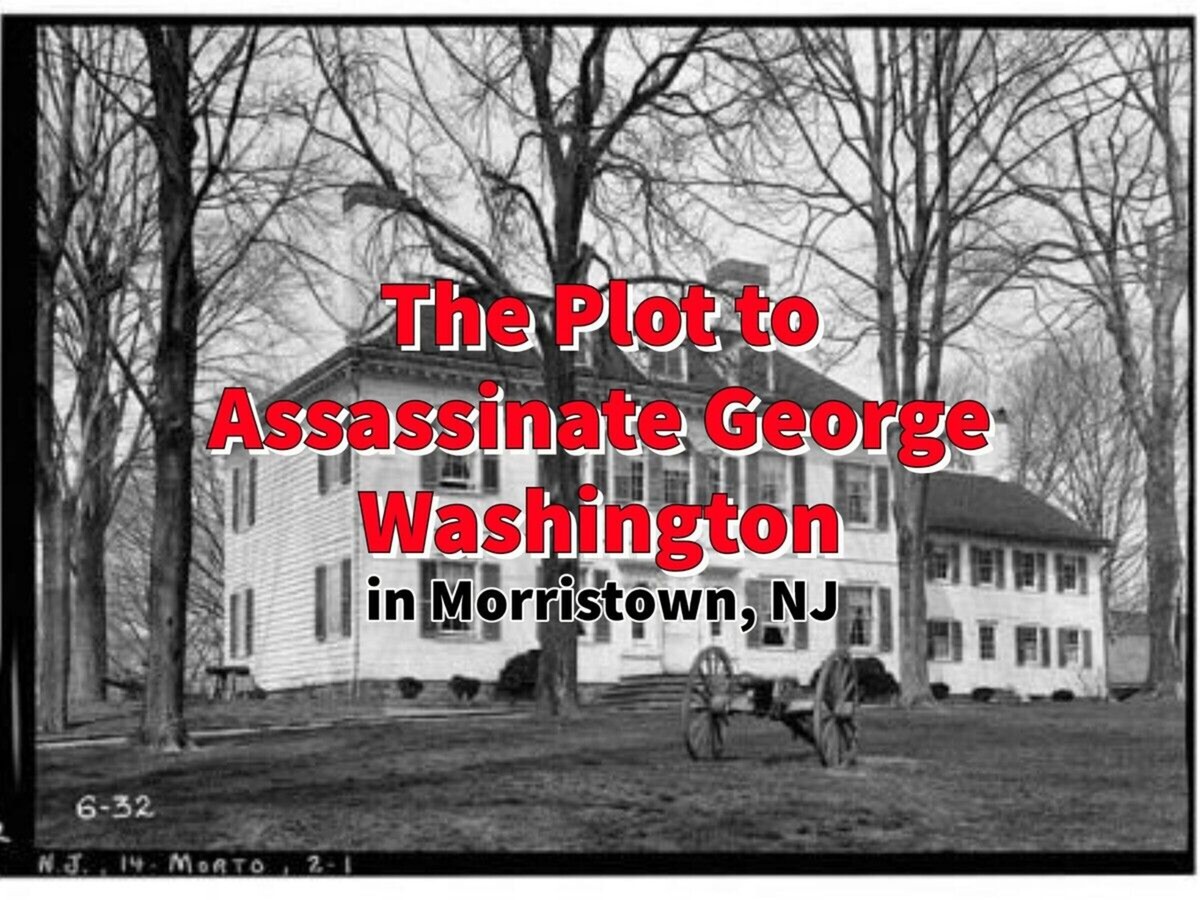Image


The British never recognized America’s cause for liberty and freedom and considered the revolution a rogue rebellion inspired by a few key leaders with George Washington at the forefront. For the British, to capture (or kill) Washington was to win the war.
When Washington and the Continental Army settled in Morristown, NJ in the winter of 1779, there was already a foot of snow on the ground, and the weather only got worse.
Washington wrote of the Winter of 1779–1780 in Morristown, saying,
“The oldest people now living in this Country do not remember so hard a winter as the one we are now emerging from. In a word, the severity of the frost exceeded anything of the kind that had ever been experienced in this climate before.”
Morristown, NJ served as the home base for the Continental Army from late November 1779 to June 22, 1780. Soldiers built log cabins holding a dozen troops each in Jokey Hollow while Washington and his staff made Jacob Ford Mansion their headquarters.
Through the winter the Continental Army faced snow up to six feet, food was scarce, and many were near starved. As the winter took its toll on the army, mutiny, desertion, and treason became more common among the American resistance fighters.
While Washington and his troops hunkered down in Morristown, a 28-year-old Lieutenant Colonel John Graves Simcoe stepped for the first time onto the frozen Hudson River and devised a plan to end the American “rebellion.”
Walking across the frozen Hudson River, Simcoe thought he ought to march troops right over the frozen water and into Morristown where Washington and his army held up for the winter.
Instead of planning a full assault, Simcoe realized he could send a small number of troops directly to Washington, settled in a mansion several miles away from the Continental Army, and potentially kidnap the general and escape before the Continental Army could sound the alarms.
For the British, to kidnap George Washington was to effectively end the war. Washington was viewed as the leader and instigator of the American “rebellion.” Simcoe would devise a plan to “cut the head off the snake.”
The plan relied on secrecy and stealth, and on overwhelming Washington’s “Life Guard,” the 110-man personal guard, a prerequisite to the secret service.
But the plan never took action, because a more sinister plot later revealed itself, the plot to assassinate George Washington.
The spirit and strength of the Continental soldiers were low during the Winter of 1779–80. Freezing temperatures and scarce food led to many desertions and eventually mutiny and treason. The British realized this (as the winter was hitting the British forces hard too) and sought out deserters for counterintelligence. Mutiny ran so deep that the British eventually infiltrated Washington’s Life Guard.
The assassination may have been successful if it weren’t for a counterfeiting arrest that led Washington himself to discover the plot against his life.
The British were actively attempting to devalue American currency during the Revolution as a way of destabilizing the American economy and way of life. Thus, the American’s considered counterfeiting a serious crime.
When two Continental soldiers were arrested for making fake currency, that brought the assassination plot to the attention of Washington himself. One deserter and counterfeiter, hoping for leniency in his sentencing, revealed to Congress that he had been in contact with British forces to devise a plan to assassinate George Washington.
The plan: blow up the King’s Bridge and then the powder magazine in New York City, then one of the Life Guard would kill Washington.
Once the plot was revealed, some 40 arrests were made and Thomas Hickey, a member of Washington’s Life Guard, was sentenced to death for conspiracy to assassinate Washington.
The plot revealed the fragility of the American Revolution, and Washington knew it. Although the plot never came to fruition, Washington knew this severe and far-reaching act of mutiny and treason could have ended the war in one swift and violent motion.
Washington famously downplayed the severity of the plot in his correspondence with Congress, out of fear that the British themselves would realize just how frail the Revolution was and how reliant the effort was on one man.
Washington and the Continental Army would leave Morristown in June of 1780 and obviously go on to win the war for independence.